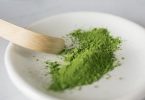CBD has taken the health supplement world by storm over the past couple of years. Since the passing of the 2018 Farm Bill, the popularity of CBD derived from hemp has skyrocketed. This monumental bill made CBD derived from hemp fully legal on the federal level, as long as the hemp contains less than 0.3% THC by weight. CBD is one of over 100 different cannabinoids that can be found in the cannabis plant family. Yes, the same plant family that THC is also a part of. Although CBD is part of the cannabis plant family, it does have some drastically different attributes. The biggest difference being that CBD will not get users intoxicated, which means users can experience the medicinal benefits associated with cannabis, without any unwanted psychoactive side effects. This has led to more people every day, adding CBD into their daily regimen. Unfortunately, not all CBD is created equal, and quality can vary greatly in the marketplace. This article will take you through some of the most important tips when browsing the CBD marketplace, both online and in retail locations nationwide.
1. Hemp Source
Location is everything when it comes to the source of hemp. We strongly urge consumers to go with brands that grow and extract their hemp plants in the USA. Sourcing domestically will ensure consumers are getting hemp plants that have not been contaminated by heavy metals and pesticides. We also strongly encourage consumers to stay away from hemp grown overseas as the land that the hemp is grown on is oftentimes contaminated with heavy metals and pesticides.
2. Third-Party Laboratory Testing
All CBD products should have third party laboratory testing that is both easily assessable by consumers, as well as up to date, within 18 months. If your CBD products currently do not have lab results, we strongly urge you to toss them and go with a brand that does third party laboratory batch testing. This will also help ensure “what is on the label, is what is in the bottle.” As you may know, the CBD industry is not regulated at this time by the FDA, so buyers must do their research and find a brand that they trust and has a good reputation in the industry.
3. Education
Knowledge is power. We urge consumers to look for brands that are helping fill the educational gap in the CBD industry. The companies that take the time to educate the public about various subjects pertaining to hemp and CBD are typically the ones that provide the most transparency and quality products in the marketplace. A good place to look for a brands focus on education is in their blog; if there isn’t much there, we would encourage you to look elsewhere as the brand is probably more interested in making a quick buck then providing you quality products that help you find relief.
4. Product Types
The CBD marketplace is filled with a variety of products, from CBD edibles to CBD massage oil. It is important to note that CBD is not a one-size-fits all model, and users sometimes have to experiment with their specific dosage and product type to find the right product that works best for them.
For those experiencing external issues related to inflammation and pain, we would recommend a topical CBD products such as a CBD balm salve or CBD stick. For internal issues related to anxiety, autoimmune issues, and much more, we would recommend going with a CBD tincture or CBD softgels.
We hope this article helps you distinguish quality CBD products versus subpar ones and helps you choose the right CBD product meant just for you!







